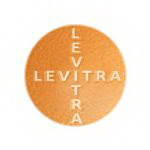
Until the late 1990s, there were no truly effective oral medications for erectile dysfunction — the inability to achieve or sustain an adequate erection for sexual activity. The useful drugs that were available had to be injected into the penis or inserted into the urethra.
Treatment of erectile dysfunction is much easier now, thanks to a class of drugs called phosphodiesterase-5 (PDE-5) inhibitors. The medications — sildenafil (Viagra), vardenafil (Levitra) and tadalafil (Cialis) — all improve erectile function in the same basic way, but they differ in how quickly they take effect and how long their effects last.
Viagra, Levitra and Cialis: How they work
Viagra, Levitra and Cialis prevent the breakdown of nitric oxide, a chemical messenger that promotes relaxation and opening of the blood vessels that supply erectile tissue in the penis. Under the influence of nitric oxide, these vessels expand and stay dilated. Increased blood flow makes erectile tissue swell and compress the veins that carry blood out of the penis, resulting in a full erection.
PDE-5 inhibitors do not automatically trigger erections. Sexual stimulation also is needed to start the whole process. The medications enable a more complete response to sexual stimulation.
Many clinical trials have shown that PDE-5 inhibitors improve erectile function regardless of the underlying cause or causes. Viagra, Levitra and Cialis increase the number and quality of erections and sexual experiences in men with erectile dysfunction due to arteriosclerosis, diabetes, spinal cord injury, depression or the aftereffects of prostate cancer surgery.
Similarities and differences
The drugs have slightly different chemical compositions that affect how quickly they work and wear off. Other distinctions — for example, which drug may be best for men of different ages or with different medical conditions — aren't known. No study has directly compared these three medications.
 |  |  | |
|---|---|---|---|
| Usual dose | 50 milligrams (mg) a day | 10 mg a day | 10 mg a day |
| Maximum doses | 100 mg a day | 20 mg a day | 20 mg a day |
| Available as | 20 mg, 25 mg, 50 mg and 100 mg tablets | 2.5 mg, 5 mg, 10 mg and 20 mg tablets | 5 mg, 10 mg and 20 mg tablets |
| How to take | Without food | Without food | With or without food |
| When to take | 30 to 60 minutes before sexual activity | 30 to 60 minutes before sexual activity | 30 minutes before sexual activity |
| Duration of effects | Up to four hours | Up to four hours | 24 to 36 hours |
| How often to use | Up to once a day | Up to once a day | Up to once a day |
| Side effects | Headache, flushing, indigestion, stuffy or runny nose, upset stomach, diarrhea | Headache, flushing, indigestion, stuffy or runny nose, upset stomach, dizziness | Headache, indigestion, back pain, muscle aches, flushing, stuffy or runny nose |
| Warnings | Do not take with nitrates (Nitro-Dur, others), or if you have certain heart valve problems. Should be used with caution or not used at all with alpha blockers. Should not be used with some antibiotic, antiviral or antifungal medications. | Do not take with nitrates (Nitro-Dur, others) or alpha blockers (Hytrin, Cardura, others), or if you have certain heart valve problems. Should be used with caution or not used at all with alpha blockers. Should not be used with some antibiotic, antiviral or antifungal medications. | Do not take with nitrates (Nitro-Dur, others) or alpha blockers (Hytrin, Cardura, others), or if you have certain heart valve problems. Should be used with caution or not used at all with alpha blockers. Should not be used with some antibiotic, antiviral or antifungal medications. |
Several factors may affect your choice of medication, including how well your body responds to one drug over another and how long you want the effects of each dose to last. Talk to your doctor about your options and personal preferences to help decide which one of these medications might work for you.
Not safe for everyone
Although these medications can help many people, not all men can safely take them. PDE-5 inhibitors may worsen certain medical conditions and interact with a number of drugs. Erectile dysfunction medications are dangerous when used with nitrate medications, such as nitroglycerin (Nitro-Dur, others), often prescribed to prevent or treat acute angina (chest pain due to coronary artery disease). Both types of medication dilate blood vessels, and their combined effects can cause dizziness, low blood pressure and loss of consciousness.
In rare cases, men using PDE-5 inhibitors have suffered permanent, total vision loss due to nonarteritic anterior ischemic optic neuropathy (NAION). Because NAION and erectile dysfunction share many of the same risk factors, it's unclear whether the drug or an underlying condition is responsible. If you're considering an erectile dysfunction drug but have a retinal disorder, such as diabetic retinopathy, see your eye doctor first.
Realistic expectations
Occasional erectile dysfunction is a common problem, particularly as men age. Medication won't make you feel like you're 20 again, but it can help you achieve satisfying sexual relations more often. Be willing to work with your doctor to find which medication and dosage is best for you.
No comments:
Post a Comment